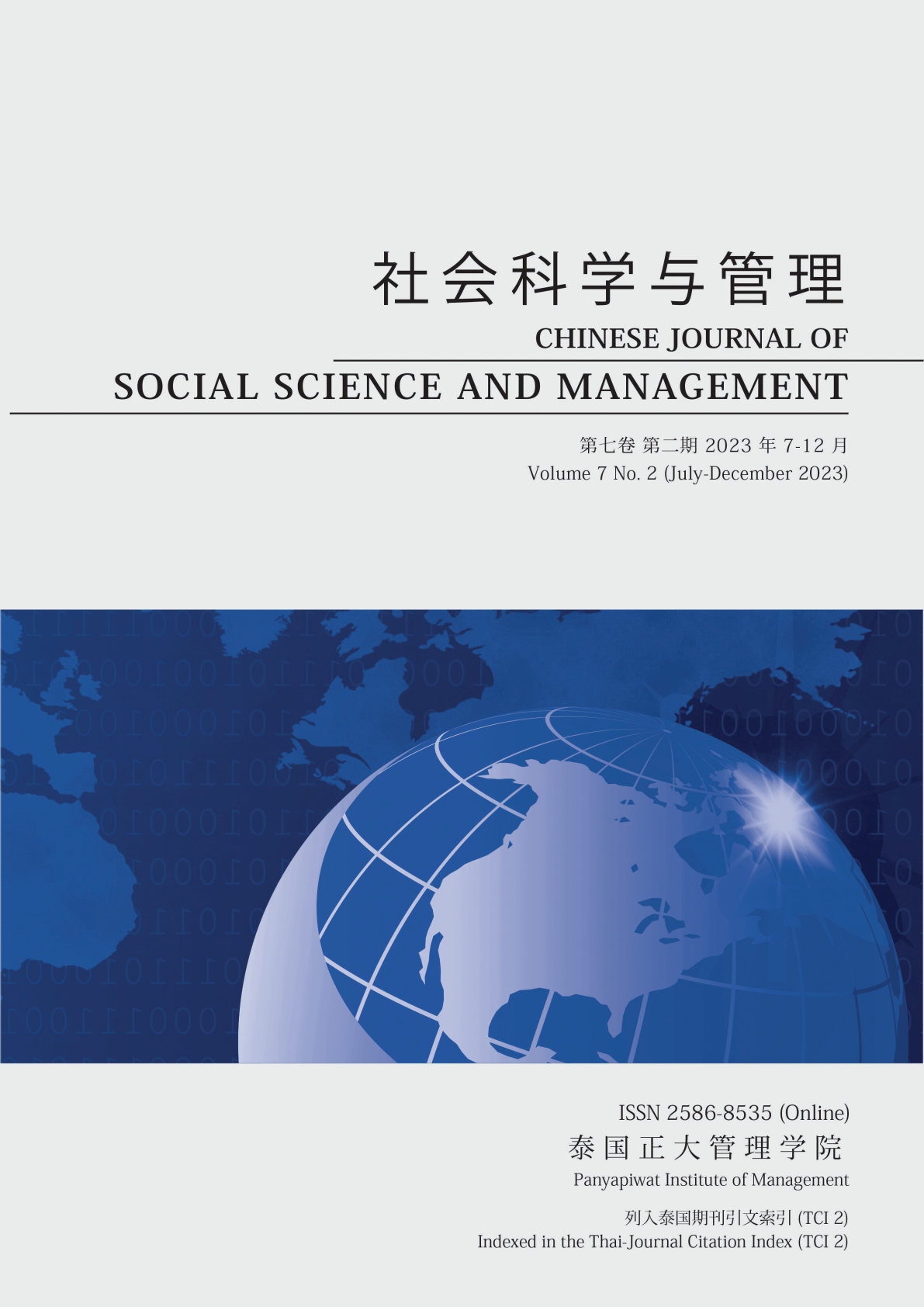THE INFLUENCE OF LONE WOLF TENDENCY ON KNOWLEDGESABOTAGE: THE MODERATING ROLE OF WORKPLACE OSTRACISM AND SELF-IMPROVEMENT
Main Article Content
Abstract
Employees comprise the smallest activity unit in an organization, and employee characteristics are an important factor in predicting employee behavior. Lone Wolf employees are a typical representation of “unsociable” behavior, and thus form a group that needs special attention in an organization. Knowledge that promotes growth is the driver of an organization, and its sabotage will seriously affect its prosperous development. In this study, knowledge sabotage is regarded as an extreme knowledge behavior that harms organizations or other employees, and the relationship between employees with a Lone Wolf tendency and knowledge sabotage is interpreted from the perspective of moral behavior, and its mechanism and occurrence conditions are explored. Through data analysis of 305 employees at four time points, it was found that: (1) the Lone Wolf tendency has a significant positive effect on knowledge sabotage, (2) workplace ostracism enhances the positive relationship between the Lone Wolf tendency and knowledge sabotage, and (3) there is a positive relationship between the weakening of self-improvement and knowledge sabotage.
Article Details

This work is licensed under a Creative Commons Attribution-NonCommercial-NoDerivatives 4.0 International License.
Chinese Journal of Social Science and Management Editorial Division
The Office of Research and Development, Panyapiwat Institute of Management
85/1 Moo 2, Chaengwattana Rd., Bang Talat, Pakkred, Nonthaburi 11120, Thailand
Tel. 02 855 01048 E-mail: cjssm@pim.ac.th
References
Allard, T., & White, K. (2015). Cross-domain effects of guilt on desire for self-improvement products. Journal of Consumer Research, 42(3), 401-419.
Buenechea-Elberdin, M., Sáenz, J., & Kianto, A. (2018). Knowledge management strategies, intellectual capital, and innovation performance: A comparison between high-and low-tech firms. Journal of Knowledge Management, 22(8), 1757-1781.
Dixon, A. L., Gassenheimer, J. B., & Feldman Barr, T. (2003). Identifying the lone wolf: A team perspective. Journal of Personal Selling & Sales Management, 23(3), 205-219.
Ferris, D. L., Brown, D. J., Berry, J. W., & Lian, H. (2008). The development and validation of the workplace ostracism scale. Journal of Applied Psychology, 93(6), 1348.
Helgeson, V. S., & Mickelson, K. D. (1995). Motives for social comparison. Personality and Social Psychology Bulletin, 21(11), 1200-1209.
Husted, K., Michailova, S., Minbaeva, D. B., & Pedersen, T. (2012). Knowledge sharing hostility and governance mechanisms: An empirical test. Journal of Knowledge Management, 16(5), 754-773.
Li, Z. D., & Yin, S. Y. (2021). How does workplace exclusion affect employees’ willingness to share? - research based on social support perspective. Social Construction, 8(4), 83-96.
Serenko, A. (2019). Knowledge sabotage as an extreme form of counterproductive knowledge behavior: Conceptualization, typology, and empirical demonstration. Journal of Knowledge Management, 23(7), 1260-1288
Serenko, A. & Choo, C. W. (2020). Knowledge sabotage as an extreme form of counterproductive knowledge behavior: The role of narcissism, machiavellianism, psychopathy, and competitiveness. Journal of Knowledge Management, 24(9), 2299-2325.
Wang, L. L., Long, L. R., & Zhang, Y. (2021). The effect of individual agreements on workplace rejection and self-improvement: The role of jealousy and sense of global justice. Management Review, 33(8), 234. [in Chinese]
Yang, Y. Y., Cai, Y., Song, Y. M., & Shi, W. D. (2021). The influence of dark personality traits on knowledge sharing hostility: The chain mediating role of employee relationship and interpersonal trust. Psychological Science, (3), 626-632. [in Chinese]
Zhang, L. Y., Jiang. Y. J., Qian, J. R., & Jiang, C. Y. (2020). Lone wolf tendency and workplace deviance: The perspective of social exclusion. Science Research Management, 41(9), 178-186. [in Chinese]


